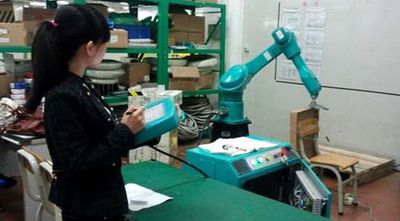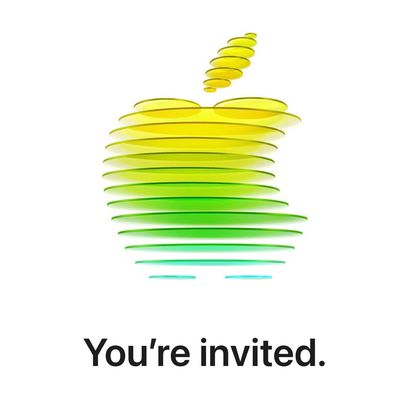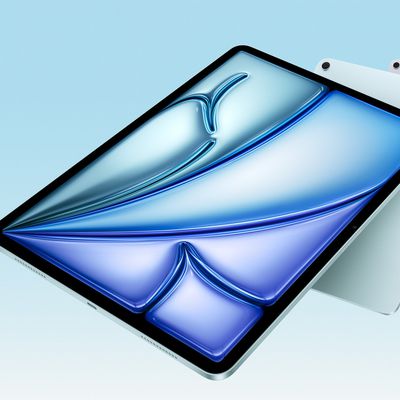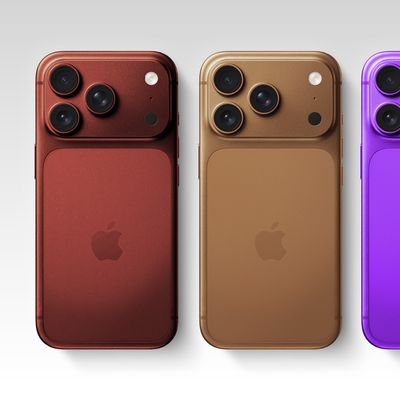Foxconn Robots Proving Unsuitable for iPhone Assembly, Updated Versions in the Works
Foxconn recently deployed robots to help assemble iPhones and other Apple devices, but so far the program may not be as successful as first anticipated. According to the Chinese economic website Jiemian (via G for Games), the first-generation Foxconn robots are not precise enough to meet Apple's standards.

In the first stage of deployment, the "Foxbots" have been tasked with menial jobs that include the assembly of larger components and tightening screws. Unfortunately, the bots are proving to have an accuracy to 0.05 mm, which is above the 0.02 mm tolerance required to assemble Apple's products.
Part of the issue involves the lineage of the robots, which were adapted from the car manufacturing industry. The larger, clunky robots are not designed with the flexibility necessary for the assembly of Apple's thin and complex devices. Foxconn reportedly is working on the second-generation Foxbot, but the technology still may need additional years of refinement before it can make a meaningful contribution to the assembly process.
Foxconn has been seeking ways to improve production to meet Apple's demand for iPhone and iPad units. The company routinely increases its hiring ahead of planned Apple product launches with the company reportedly hiring up to 100,000 new workers to help assemble the iPhone 6. The manufacturer also may be looking to enter the display market with a new display manufacturing plant in Taiwan.
Popular Stories
Apple today announced a "special Apple Experience" in New York, London, and Shanghai, taking place on March 4, 2026 at 9:00am ET.
Apple invited select members of the media to the event in three major cities around the world. It is simply described as a "special Apple Experience," and there is no further information about what it may entail. The invitation features a 3D Apple logo design...
Apple plans to release an iPhone 17e and an iPad Air with an M4 chip "in the coming weeks," according to the latest word from Bloomberg's Mark Gurman.
"Apple retail employees say that inventory of the iPhone 16e has basically dried out and the iPad Air is seeing shortages as well," said Gurman. "I've been expecting new versions of both (iPhone 17e and M4 iPad Air) in the coming weeks."...
Apple's upcoming iPhone 18 Pro and iPhone 18 Pro Max models "won't be a big update," according to Bloomberg's Mark Gurman.
In the latest edition of his "Power On" newsletter, Gurman said that the iPhone 18 Pro models will "represent minor tweaks from last year's iPhone 17 Pro and 17 Pro Max." He compared the upgrade to Apple's past practice of appending the letter "S" to its more minor...
Apple on Monday invited selected journalists and content creators to a "special Apple Experience" on Wednesday, March 4 in New York, London, and Shanghai.
At an Apple Experience, attendees are typically given the opportunity to try out Apple's latest hardware or software. Following the launch of Apple Creator Studio last month, for example, some content creators attended an Apple Experience...
While the iPhone 18 Pro and iPhone 18 Pro Max are still seven months away, an analyst has revealed five new features the devices will allegedly have.
Rumored color options for the iPhone 18 Pro models
In a research note with investment firm GF Securities on Thursday, analyst Jeff Pu outlined the following upgrades for the iPhone 18 Pro models:
Smaller Dynamic Island: It has been rumored...






















